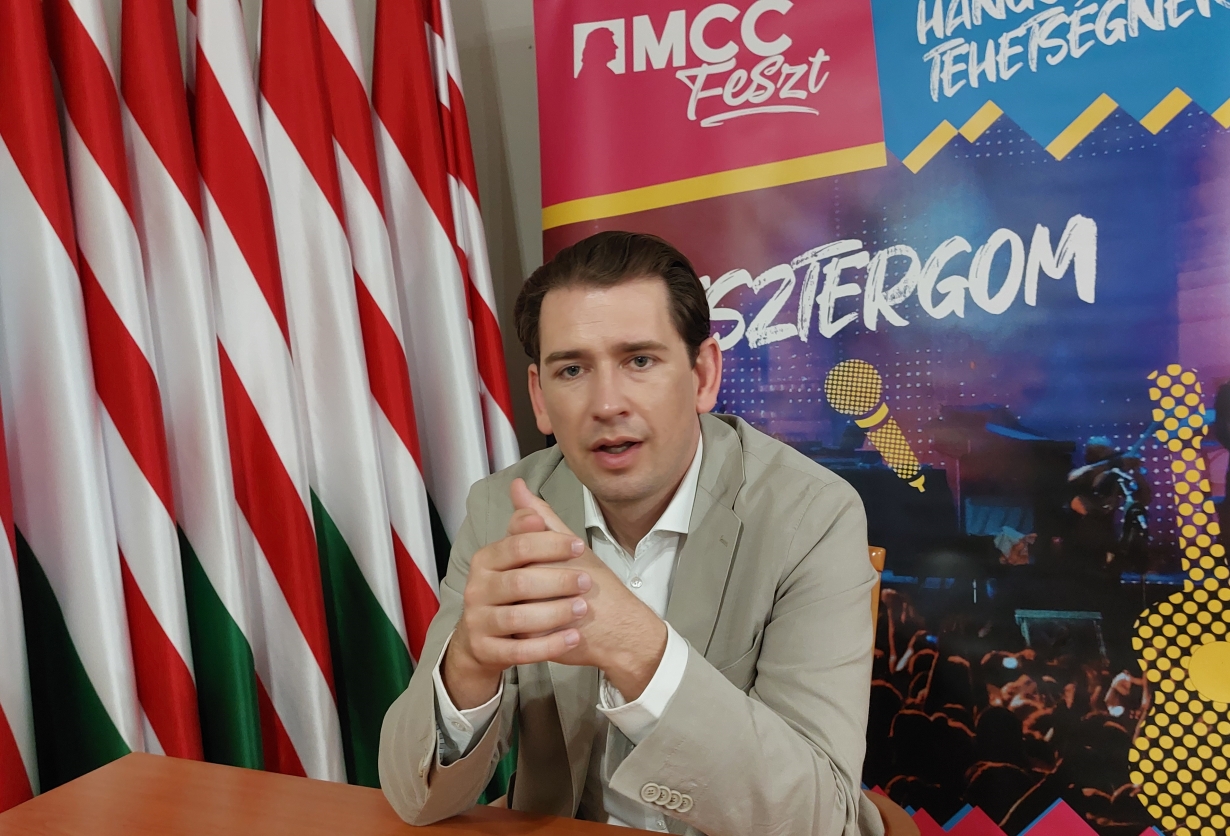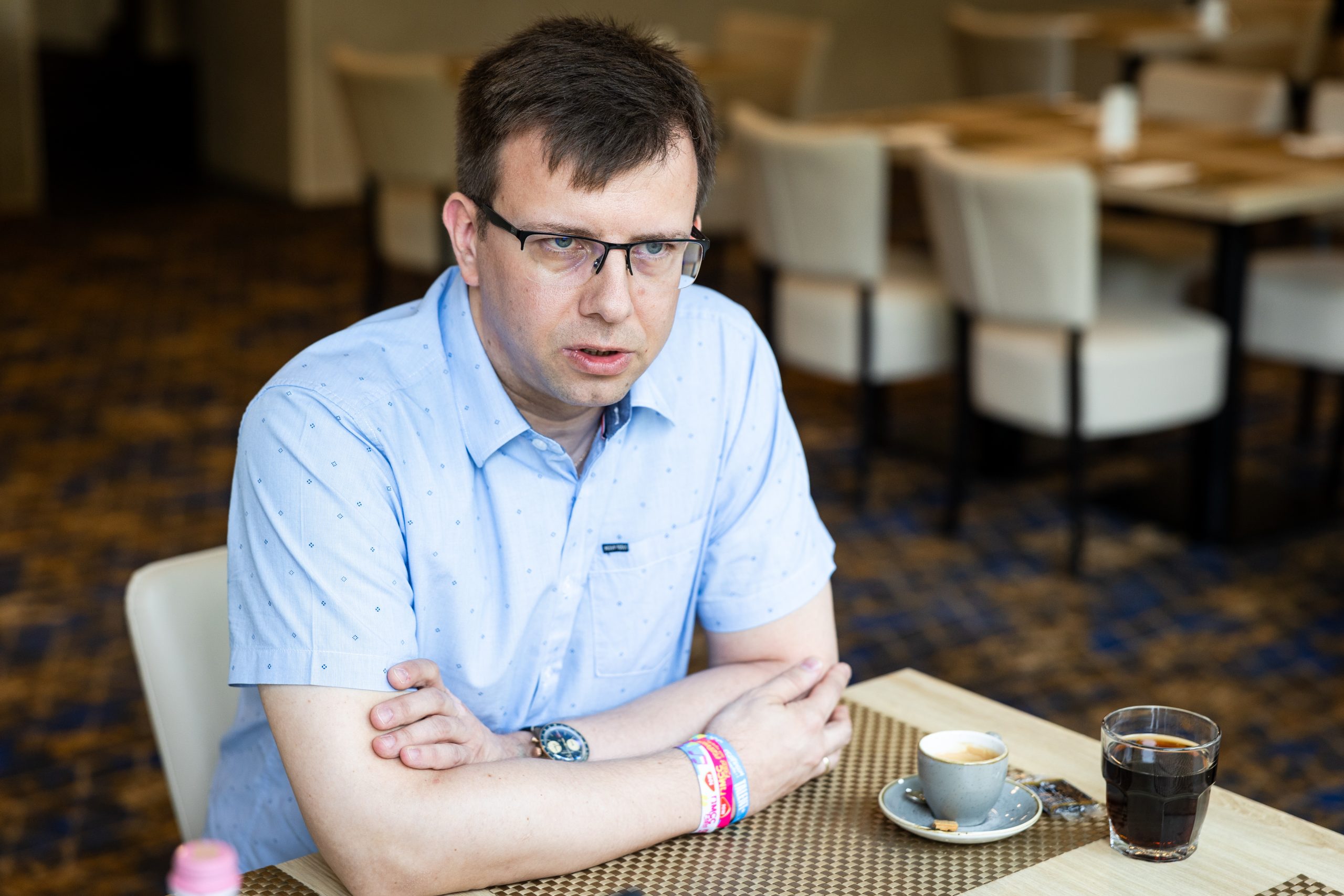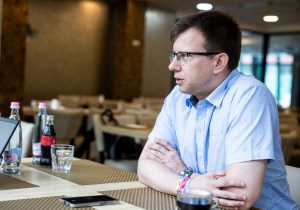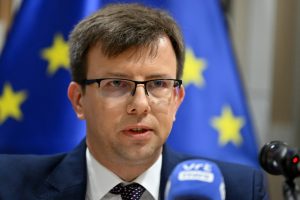
There is a lot of useful talk about migration, but it is not yet followed by real action.Continue reading

During the Mathias Corvinus Collegium’s annual MCC Feszt workshop held in Northern Hungary’s Esztergom, we had the opportunity to meet Hungary’s Minister for European Union Affairs, János Bóka. In an exclusive interview he answered our questions concerning the progress of the ongoing Hungarian presidency of the EU, as well as whether he believes the European Union can still be reformed.
The Hungarian presidency comes at a crucial period when it comes to the institutional cycle. We are just after the European Parliament elections – we are in the middle of an institutional transition period. In this period, the most important task for the Hungarian presidency is to ensure a smooth institutional transition and to assist the European Parliament (EP) and the European Commission (EC) in the transition process, and to represent the stability and continuity. This is so as during this period the Council and the Council presidency is the only institution that remains intact. So far, the Hungarian presidency has been successful in achieving this.
At the beginning of the new institutional cycle that lasts until the next EP elections in five years, the task of the presidency is to start strategic policy discussions in all areas where we believe that the new institutional cycle needs to bring change or new dynamism in some areas.
We have identified the competitiveness of the EU, security and defense policy, enlargement, cohesion, agriculture and demographic challenges as key areas where we believe that European policies need to change and the EU needs a new approach.
We have already managed to put all these issues on the table through formal and informal Council meetings, and these discussions will continue. I believe, in this respect, we have been successful.
It certainly does not look like isolation, and we definitely do not feel isolated. We call all these meeting and we organize all these events with the objective to start discussions on issues that we all believe are a concern for Europe as whole, and where a European approach or coordination is needed. I think that all those who participate in these discussions benefit from the discussions, and the European Union as a whole also benefits. For me what is important is that all those delegations who attend events and meetings, come professionally prepared and with a political mandate so as to meaningfully engage in those discussions. I think all the events that we organized fulfilled these criteria and have produced a meaningful discussion on the future of the EU.
A busy and productive first month of the Hungarian Presidency:
8️⃣0️⃣0️⃣ Delegations visiting Hungary
2️⃣3️⃣0️⃣ Working group meetings
4️⃣3️⃣ Side events
5️⃣ Informal Council meetings in Budapest
3️⃣ @EUCouncil meetingsMany more to come…#HU24EU
pic.twitter.com/NFJBcTrshV— Hungarian Presidency of the Council of the EU 2024 (@HU24EU) July 31, 2024
To be honest, I do not really see what the purpose of this is, because if the presidency of the Council is paralyzed, it paralyzes the European Union as a whole, and I do not think that the paralysis of the EU is in the interest of anyone. So, frankly I do not see the point, the objective. I know the reasons, and the reason is that Hungary and the current Hungarian government has a very characteristic and clear policy. As far as the EU is concerned, we have a very strong and powerful vision about how the EU should work, how it would benefit member-states through cooperation in areas of mutual interest.
This idea of European cooperation is not necessarily shared by all EU institutions and by all member states.
Long before the presidency started, our political opponents already tried to undermine the presidency and discredit it, because they wanted to undermine and discredit our EU policy.
Theses political attacks have nothing to do with the presidency itself; I have not heard any statements that the presidency program is not consensual, not timely and appropriate. I have not heard any statements that the organizational side of the presidency is not 100% prepared. I have not heard any statements that our diplomats and experts are not professional. So, none of the criticism touches upon the presidency itself. The above criticism needs to be interpreted in the context of our EU policy, but of course our EU policy will not change because it is based on our beliefs, and it has very strong political support in Hungary and all over Europe now.
It is actually none of these. If I want to be cynical, I would say that I do not recall Donald Trump ever wanting to make Europe great again. So that is clearly not a nod to Donald Trump. And when it comes to Europeans and all those who work for the European Union in Brussels or elsewhere, anybody who does not want to make Europe great again, please stand up because then I think you are working at the wrong place.
To be more on the serious side, I think that our choice turned out to be a good one because it is attracting attention. It creates discussion which is also a good thing, and I think if we go beyond the surface, it poses two very important questions. These two questions are at the core of the Hungarian presidency. One question is whether Europe is strong and autonomous enough when it comes to geopolitics, international trade, economics. Whether we are looking at the world without Europe at its center, whether we are willing to make Europe great in the sense that everything that we do centers around Europe as an entity. Are we ready to put Europe at the center of how we see the world? This is question number one.
Question number two: Europe is first and foremost an idea. It is not geographical, historical entity because as a geographic, historical and cultural entity it has changed tremendously in the past centuries. It is first and foremost an idea, a concept. An idea or concept is great if, and when it connects with the people. Whether Europe or the EU as we know it is connecting well with Europeans. Whether they believe that this concept of Europe and the EU works for them, understands them, reflects their aspirations, desires and interests.
If we manage to bring Europe closer to the Europeans in the sense that they can feel that the EU works for them, in this sense we will make Europe great again.

János Bóka Photo: Ministry of EU Affairs
I fully agree with Chancellor Kurz that indeed the discussion has shifted. This has been the case at least in the European Council on the level of the political leaders of the EU. This has been happening for 1.5-2 years now. There is a general consensus that whatever the outcome of the implementation of the migration and asylum pact is, it does not solve the migration crisis that we are facing. In order to solve the migration crisis, we need to protect the external borders of the EU better, we need to work with partner countries and immediate neighbors in the framework of a comprehensive partnership, including migration related aspects, and we need to address the root causes of migration. This is what in Brussels is called the external dimension of tackling migration challenges.
I believe that during the Hungarian presidency we will be able to deliver, at least when it comes to the root causes of migration, by creating a new development partnership with countries in our neighborhood, but also those in Africa, where we will build on the momentum created by the new Italian government, their new Africa strategy. We will work with the partner countries on comprehensive partnership programs. This is already ongoing. There are discussions after concluding such an agreement with Egypt and Tunisia. Now there are discussions with other countries in the region, and I think during the Hungarian presidency there will be specific developments in this area.
I honestly believe that the EU needs to change, and I do believe that it can be changed. If I had a different opinion, I would not be Minister for EU Affairs in the Hungarian government. I do believe that there is a tremendous need for change, I think this has been reinforced by the results of the European Parliament elections where Europeans overwhelmingly voted for political parties that campaigned with the promise of change. It is of course easier said than done because there are very strong entrenched interests in the EU, both politically as well as institutionally. I think that we need to do the legal, the technical and the political work both in member states and on the level of the European institutions to keep the hope of change alive. The Hungarian presidency and Hungary will be the voice of change in the European institutions. We believe that this desire for change, this need for change has been expressed in the European Parliament elections, and the message is clear.
It is our political responsibility and the responsibility of Hungary and the Hungarian presidency to be the voice of this change and keep the hope of change alive.
First of all, I am deeply convinced, I know, I feel, that Hungary is a European country, and Hungarians are Europeans which means that our natural place is in the European Union. So, we are where we should be, and we are where we belong. This means that we are part of the European community, and the boundaries of the European community are not decided by agreeing or disagreeing on certain policy issues. I also believe that the EU, if it wants to be true to its motto of “being united in diversity”, then it needs to take this more seriously. Europeans want to be united in diversity and not to be united in uniformity, which means that everybody in the EU – Member States, institutions and individuals – need to get used to the idea and the fact that we are cooperating strongly in the EU, we have common values and interests, but all this does not mean that we agree on everything. It does not mean that we have identical views and identical aspirations, but we need to be able to work with these differences, and we need to be able to unite in diversity.
I also believe that the membership of the EU has no alternative for Hungary. I believe, it did not have any alternative 20 years ago when we joined the European Union, and it does not have any alternative now.
I believe that our membership is not only good for us but also good for the EU as a whole. It is a relationship which is based on mutual interest. If we manage to accept our differences, and if we manage to work together even in areas where we do not agree, I believe that the EU does have a perspective. But for this the EU needs to change.

File Photo: MTI/Purger Tamás
Featured Image: Courtesy of Ministry of EU Affairs